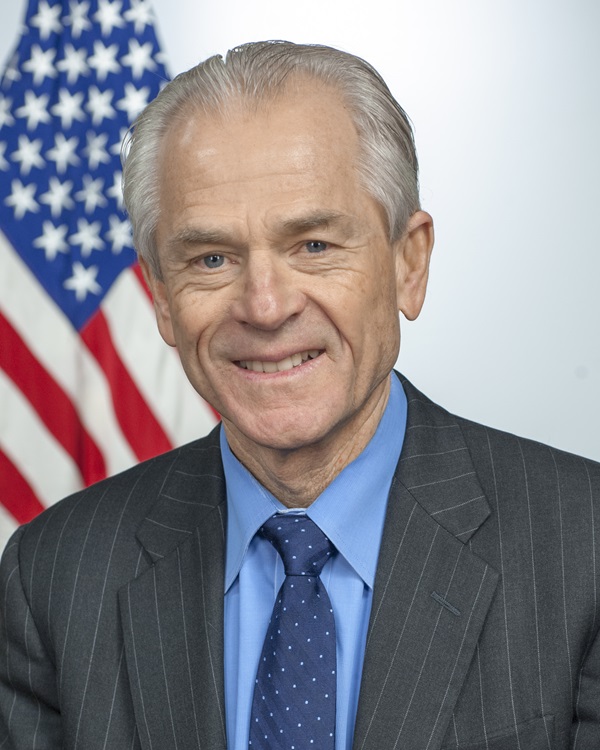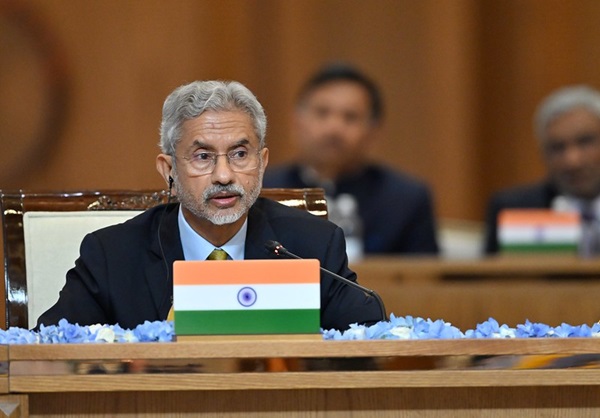1. Ford’s new Indonesian EV plant
In a significant move towards expanding its electric vehicle footprint, Ford Motor Company has announced plans to invest in an EV manufacturing plant in Indonesia. This strategic investment is set to commence in 2025, marking a pivotal step for both Ford and the Indonesian automotive industry.
Strategic Location and Resources
Indonesia, known for its rich nickel reserves, presents an attractive opportunity for Ford. Nickel is a crucial component in EV batteries, and Indonesia is the world’s largest producer, accounting for over 20% of the global supply. By establishing a plant in close proximity to these resources, Ford aims to streamline its supply chain and reduce production costs.
Government Support and Economic Impact
The Indonesian government has been actively courting global automakers to invest in the country, leveraging its vast market potential and strategic location in Southeast Asia. Deputy Industry Minister Faisol Riza expressed confidence in the development of the local EV industry, highlighting the potential for job creation and economic growth. The government’s push for higher local content in EV production is expected to further bolster the industry.
Ford’s Commitment to Sustainability
This investment aligns with Ford’s broader commitment to sustainability and reducing its carbon footprint. The company has already partnered with Vale Indonesia and Zhejiang Huayou Cobalt Company in a $4.5 billion nickel processing project on the island of Sulawesi. This collaboration aims to advance sustainable nickel production, essential for making EV batteries more affordable and environmentally friendly.
Market Expansion and Future Prospects
Ford’s return to the Indonesian market in 2022, after a six-year hiatus, has been marked by the successful introduction of the Ranger pickup truck and Everest SUV. With the new EV plant, Ford is poised to tap into the growing demand for electric vehicles in Indonesia and the broader Southeast Asian region. The company’s investment is expected to have a significant social and economic impact, particularly in job creation and technological advancement.
Conclusion
Ford’s investment in an Indonesian EV plant underscores its commitment to innovation and sustainability. By leveraging Indonesia’s rich resources and strategic location, Ford is well-positioned to lead the charge in the global transition to electric vehicles.
2. Westwood Professional Services acquires Balzer

In a strategic move to bolster its national footprint, Westwood Professional Services has announced the acquisition of Virginia-based Balzer & Associates. This acquisition marks a significant milestone in Westwood’s growth strategy, adding four new offices in Virginia and enhancing its service offerings across the United States.
Strategic Growth
Westwood, a design and consulting firm, has been on a path of rapid expansion. The acquisition of Balzer aligns perfectly with Westwood’s vision to extend its geographic reach and broaden its range of professional services. Bryan P. Powell, CEO of Westwood, expressed his enthusiasm about the acquisition, stating, “Balzer’s values align well with Westwood’s culture, and their exceptional team will add tremendous value to our company. Our focus on expanding our geographic presence and broadening the range of professional services we deliver further elevate our organization. We are excited about the positive impact of this acquisition for our people and clients”.
A Unified Vision for the Future
Balzer & Associates, established over 50 years ago, brings a wealth of experience in land development, planning, architecture, engineering, and surveying. Sean Horne, President of Balzer, shared his optimism about the merger, saying, “We are pleased to join forces with the Westwood team to enhance our capabilities and reach further. This partnership enables us to provide a broader range of services to our clients and creates new opportunities for our team. We look forward to being part of Westwood and our future efforts to drive growth as a unified team”
Continued Commitment to Excellence
Post-acquisition, Balzer will operate as Balzer & Associates, a Westwood company, continuing to serve clients from their current locations. This integration is expected to strengthen Westwood’s market-leading presence in land development and other sectors, ensuring a seamless transition and continued excellence in service delivery.
About Westwood Professional Services
Founded in 1972, Westwood is an award-winning, full-service engineering firm specializing in sustainable, commercial, residential, and public infrastructure projects. The firm has consistently ranked among the top in the industry, recognized for its innovative solutions and commitment to client satisfaction.
3. Trump names Peter Navarro as Trade Adviser

In a move that has sparked interest, President-elect Donald Trump has announced the appointment of Peter Navarro as his Senior Counselor for Trade and Manufacturing.
Navarro, 75, is no stranger to the Trump administration, having served as a top trade aide during Trump’s first term. Known for his staunch protectionist views, Navarro has been a vocal advocate for tariffs and a critic of trade deals he perceives as unfavorable to American interests. His appointment signals a continuation of Trump’s “America First” trade policies, which emphasize domestic manufacturing and job creation.
Trump announced Navarro’s new role on his social media platform, Truth Social, praising Navarro’s dedication to the principles of “Buy American, Hire American.” Trump described Navarro as a “tenacious” advocate for these policies and expressed confidence in his ability to advance the administration’s trade agenda.
As Senior Counselor for Trade and Manufacturing, Navarro will be tasked with implementing and communicating Trump’s trade policies, which are expected to focus on reducing the trade deficit, increasing tariffs on imports, and promoting American manufacturing. His appointment is seen as a clear indication of the administration’s commitment to these goals.
Navarro’s extensive background in economics and public policy, including his tenure as a professor at the University of California, Irvine, and his previous political campaigns, adds to his qualifications for the role. Despite the controversies, his expertise and alignment with Trump’s trade philosophy make him a key player in the upcoming administration.
4. Lula and Xi sign dozens of trade deals as Brazil-China ties accumulate

In a significant move to strengthen bilateral relations, Brazilian President Luiz Inácio Lula da Silva and Chinese President Xi Jinping signed nearly 40 trade and development agreements during Xi’s recent visit to Brasília. This historic event marks a new phase in the partnership between the two nations, which are key members of the BRICS group and major trading partners.
Multi Sectors
The agreements span various sectors, including trade, technology, and environmental protection. President Xi emphasized the importance of this collaboration, stating that it represents “another historic moment in the development of China-Brazil relations” and expressing China’s readiness to become “golden partners” with Brazil. President Lula echoed this sentiment, expressing confidence that the partnership would “exceed all expectations and pave the way for a new phase of bilateral relations.”
Economy
China is Brazil’s largest trading partner, with bilateral trade exceeding $160 billion last year. Brazil primarily exports soybeans and other agricultural products to China, while importing semiconductors, vehicles, and medicines. The new agreements are expected to further enhance economic collaboration and facilitate investments in Brazil’s infrastructure and industrial development.
Militant Pageantry
The state visit was marked by full ceremonial honors, including a military brass band, horse-mounted guards, and schoolchildren waving Brazilian and Chinese flags. This militant pageantry underscored the importance of the agreements and the growing partnership between the two nations.
Geopolitical Implications
Lula’s administration has been actively seeking to recalibrate Brazil’s international relationships following the divisive tenure of his predecessor, Jair Bolsonaro. By strengthening ties with China, Brazil aims to diversify its economic base and reduce its reliance on commodities. This pragmatic approach to global geopolitics involves maintaining strong ties with Washington while also building relationships with Beijing and Moscow.
Looking Ahead
The agreements signed during Xi’s visit reflect a shared ambition to promote sustainable development and green initiatives. As Brazil and China continue to deepen their ties, the global community will be watching closely to see how this partnership evolves and impacts the broader geopolitical landscape.
5. India pushing for Asean-India trade pact review

In a significant move aimed at enhancing economic ties, India’s External Affairs Minister, S. Jaishankar, has called for a comprehensive review of the ASEAN-India Free Trade Agreement (AIFTA). Speaking at a recent summit, Jaishankar emphasized the need to address existing challenges and optimize the benefits of the trade pact for all member countries.
Key Points of Discussion
Jaishankar highlighted several critical areas that require attention:
- Trade Imbalances: He pointed out the persistent trade imbalances that have affected India’s economic interests. A review of the agreement could help in creating a more balanced trade environment.
- Non-Tariff Barriers: The minister stressed the importance of reducing non-tariff barriers that hinder the smooth flow of goods and services. Simplifying these barriers would facilitate easier market access for businesses.
- Digital Economy and Services: With the rapid growth of the digital economy, Jaishankar proposed including provisions that support digital trade and services. This would ensure that the agreement remains relevant in the context of modern economic trends.
- Sustainability and Inclusivity: He also underscored the need for the trade pact to promote sustainable and inclusive growth. This involves integrating environmental and social considerations into the agreement.
Strategic Importance
The ASEAN-India Free Trade Agreement, which came into effect in 2010, has been a cornerstone of India’s Act East Policy. It aims to strengthen economic cooperation between India and the ten ASEAN member states. However, evolving global trade dynamics and economic challenges necessitate a review to ensure the agreement continues to serve the interests of all parties involved.
Looking Ahead
Jaishankar’s call for a review has been met with cautious optimism. ASEAN leaders have acknowledged the need for discussions to address the concerns raised by India. The proposed review is expected to pave the way for more robust economic ties and mutual growth.
In conclusion, the push for a review of the ASEAN-India trade pact reflects India’s proactive approach to international trade and its commitment to fostering stronger economic partnerships. As discussions progress, it will be crucial to ensure that the revised agreement is equitable, forward-looking, and beneficial for all stakeholders.
Featured image Nicole Yeary CC BY 2.0







